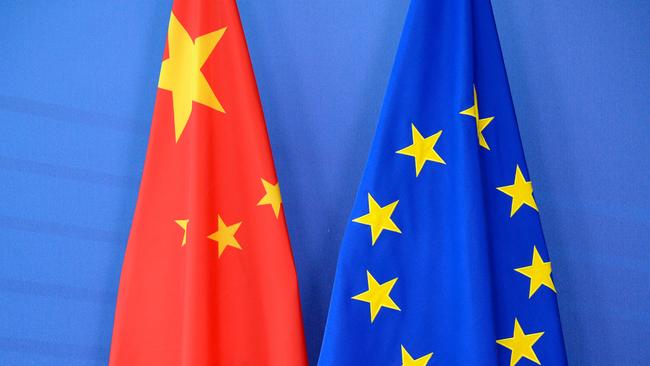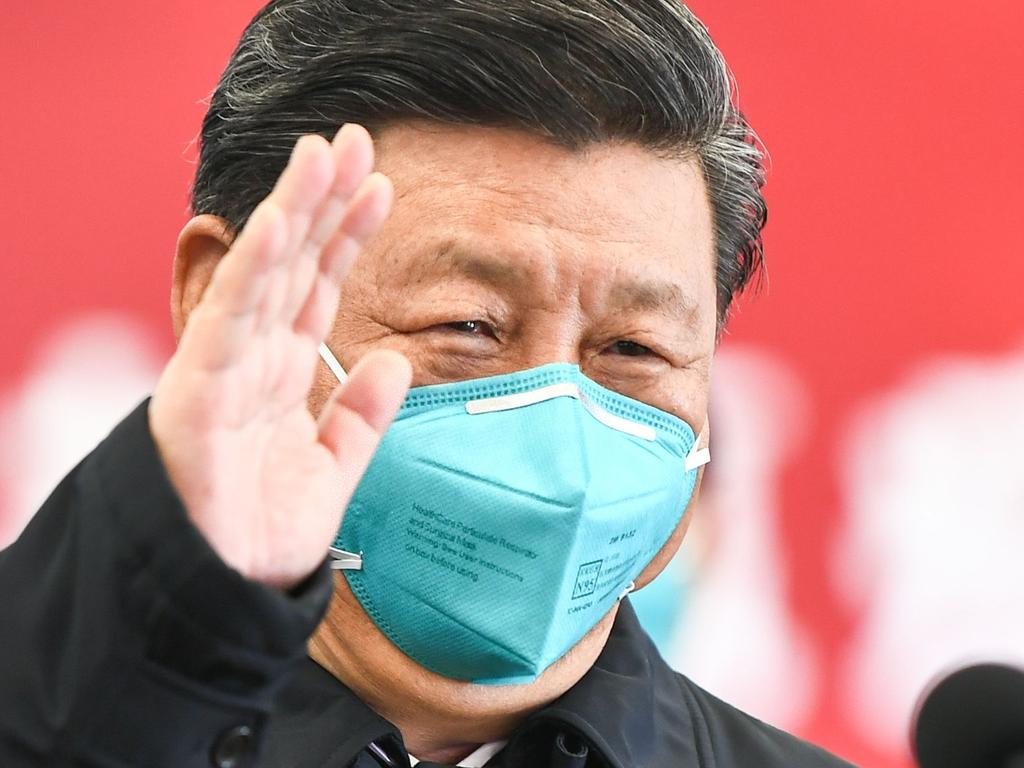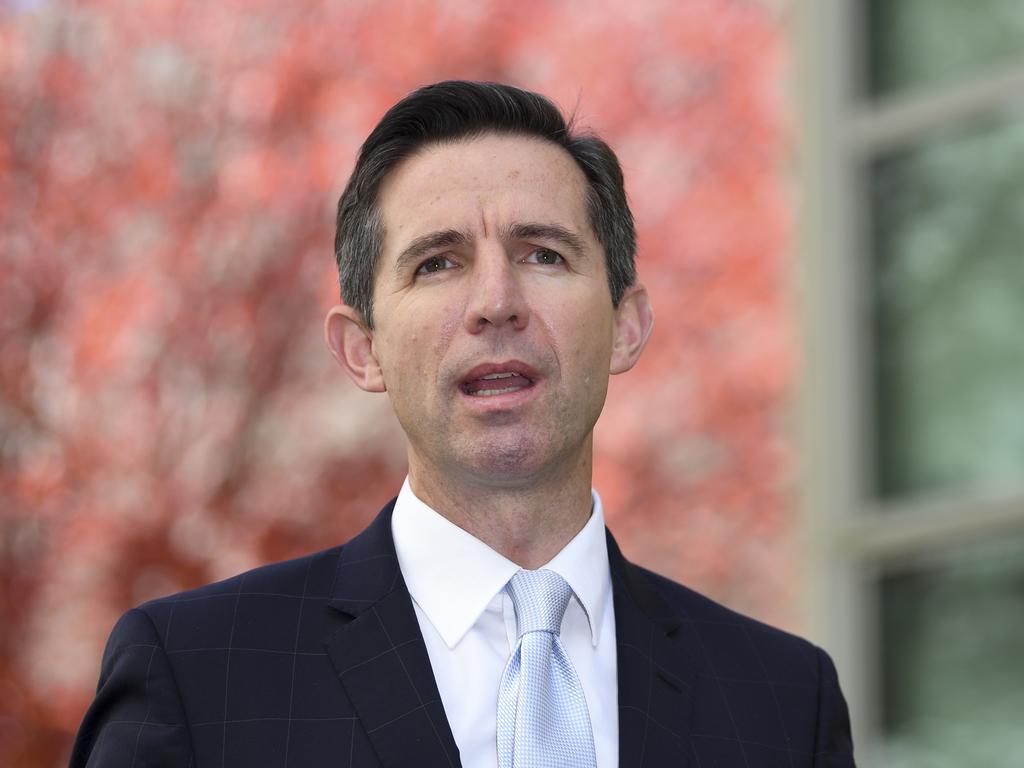EU, China agree on terms of investment pact despite US wariness
The European Union and China agree in principle on an investment accord that has sowed concern in Washington.

The European Union and China agreed in principle on an investment accord after seven years of negotiations that promises to open new Chinese markets for European companies but has sowed concern in Washington.
The agreement addresses — at least on paper — longstanding European calls for fairer competition with Chinese companies and improved access to Chinese markets. It commits Beijing to end forced technology transfers and increase transparency over how it subsidises firms.
European officials say they are gaining more than they are giving in the deal, which has won backing from leaders of all 27 EU countries but still needs their governments’ formal approval and will face a vote in the European Parliament. The Europeans also say the pact provides similar advantages to those the U.S. gained when it signed its “phase-one” trade agreement with China, which took effect early this year.
Critics of the deal in both the U.S. and Europe say that even if it gives the EU short-term commercial gains, it binds the bloc’s economy more closely to China’s and could help build the increasingly authoritarian country’s economic might just as Western leaders are working to check it.
U.S. officials have also expressed concern that the accord will help Beijing deflect external pressure to reform its state-driven economic model. Critics say Beijing has acceded to long-sought European requests in part because it wants to divide Brussels and Washington.
President-elect Joe Biden has said one of his first priorities will be to bring together Washington’s allies to coordinate responses to Beijing. Jake Sullivan, Mr. Biden’s pick for national security adviser, last week obliquely cautioned European capitals about rushing into the deal.
European officials said an agreement won’t undermine Western coordination. The investment pact will “help rebalance the trade and investment relationship between the EU and China,” said European Council President Charles Michel. “China has committed to an unprecedented level of market access for EU investors, giving European businesses certainty and predictability for their operations.” Chinese President Xi Jinping said the deal shows “China’s determination and confidence in fostering high-level external openness,” and that the pact would lead to a “brighter future for cooperation” with Europe, according to state news agency Xinhua.

Ratification of the deal could take months, EU officials said. As details emerged recently, some senior EU lawmakers threatened to block the pact because it didn’t commit China to robust action to improve labour rights and end forced labour.
Until a few weeks ago, the year-end deadline appeared beyond reach. However, German Chancellor Angela Merkel pushed fellow Europeans hard to reach a deal while senior Chinese officials, including Mr. Xi, stepped in to offer concessions over market access. German and Chinese officials were both eager to complete the deal before Mr. Biden enters office, diplomats said.
The agreement lifts joint-venture requirements in financial services and phases them out in the automobile sector. It includes new openings in markets for health services, cloud computing and electric vehicles, and lifts monopoly rights for auxiliary air-transport services, EU officials said. They also touted Chinese commitments that state-owned enterprises won’t discriminate between European and Chinese firms.
The pact obliges China to uphold environmental commitments such as the implementation of the Paris climate accord and pursue ratification of international labour standards. There is no deadline for that.
For China, the agreement will broaden access to some EU manufacturing sectors and to the bloc’s energy industry. Chinese access to the EU renewables sector can increase as China lifts its barriers to European investment, EU officials said.
The pact includes no new investor protection mechanism that would allow European firms to directly litigate disputes. Instead, a high-level bilateral investment committee will oversee implementation and seek to swiftly resolve differences. If that fails, market access disputes will go to arbitration panels that can issue binding penalties. If China fails to implement significant parts of the deal, it could jeopardise existing Chinese access to some EU markets that are already open, an official said.

Still, skeptics questioned whether China would fully implement its pledges. China has recently tightened its foreign investment rules and has used administrative barriers to stymie foreign firms in key domestic markets. Australia has accused China of breaching its free-trade agreement with Beijing and the extent of China’s follow-through on its phase-one commitments, including specific purchasing agreements for U.S. products, is in doubt.
“I would ask the question, are we looking at a level-playing field? Are Chinese investments in the EU receiving the same treatment as EU investments going to China?” said Steve Tsang, director of the SOAS China Institute in London. “It doesn’t look to me as if it has established reciprocity.” Mr. Sullivan last week tweeted a link to a report on the talks and said the incoming administration “would welcome early consultations with our European partners on our common concerns about China’s economic practices.” European officials say the EU will continue working with the U.S. to press China over outstanding trade complaints, including China’s overproduction in some markets and Beijing’s use of subsidies to undercut foreign competitors.
Nevertheless, the agreement underlines continued flux in European views toward China. On one hand, European officials insist the bloc will pursue its own independent relations with Beijing and are locking their economies, especially that of EU powerhouse Germany, more tightly to China’s.
Yet European attitudes have hardened over China’s disinformation campaigns, human-rights record, economic practices and geopolitical ambitions.
In October, the EU started a formal dialogue with Washington to discuss China, a platform that diplomats believe will deepen under the Biden administration. European officials have also tightened screening of Chinese investments and taken measures, in some countries, to crack down on technology firms such as Huawei Technologies Co. The investment pact won’t affect those measures, officials said.
Europe’s divisions on China surfaced during the final weeks of negotiations. Ms. Merkel, who has long championed the pact as part of her engagement strategy with Beijing, faced pushback from close U.S. allies including Poland, causing uncertainty about EU support for the deal.
Noah Barkin, a specialist on Europe-China relations at consulting firm Rhodium Group, said that despite officials’ claims, the deal represents a setback to trans-Atlantic cooperation on Beijing.
“Preventing such a trans-Atlantic front has been a top priority for the Chinese leadership and likely explains Xi Jinping’s eleventh-hour intervention to seal a deal -- and Beijing’s insistence that it be concluded quickly, before Biden takes office,” he said in a report last week.
Bojan Pancevski contributed to this article.
The Wall Street Journal







To join the conversation, please log in. Don't have an account? Register
Join the conversation, you are commenting as Logout